50 start with P start with P

E-Textbooks are now available to purchase or rent through VitalSource.com! Please visit VitalSource for more information on pricing and availability.
As of January 1, 2021, Smart Sparrow Companion Websites are no longer available for any of our textbook programs. New companion websites are coming soon, and will be hosted by Lingco. Instructors may sample the new companion websites now by visiting GUPTextbooks.com/companionwebsites. The full websites will be available for fall 2021 course adoption.
Until the new companion websites become available, eBook Workbooks with exercises from the Smart Sparrow Electronic Workbook are available for purchase on the GUP website and VitalSource.com, as are Workbook Answer Keys. They will both be sold in eBook format only.
Panorama moves intermediate-level students of Russian toward advanced proficiency by engaging them in a systematic and comprehensive approach to Russian grammar with texts from a variety of genres, including proverbs and sayings to immerse students in Russian culture.
By reading and listening to Russian literary classics and contemporary nonfiction texts, students develop a contextual understanding of Russian culture and forms of expression that grow their command of vocabulary, grammar, and complex syntax. The textbook includes comprehensive in-class vocabulary and grammar exercises and discussion topics as well as reading texts (for work in class and at home), summative oral and written exercises, and compelling color photos.
An additional eBook Workbook (sold separately) includes essential homework exercises to practice vocabulary, grammar, listening, and speaking. eBook Workbook Answer Keys are also available for purchase for instructor use, or for students to check their own work.
Features of Panorama:
• Content can be used in one semester/two terms or for a full year• Modular structure allows instructors flexibility to assign chapters in their own sequence• Authentic photojournalist photos to prompt discussion exercises for each chapter topic• Summative exercises for each chapter test student mastery of the grammar topics, vocabulary, and cultural competence related to the chapter theme in a written essay format• Most grammar examples and exercises are drawn from the Russian National Corpus• Readings include blogs, blog comments, articles, and interviews, exposing students to current Russian culture and language. • Audio needed for completing homework exercises is available for free at www.press.georgetown.edu
For Teachers:
Exam copies of the textbook, Workbook, and Workbook Answer Keys are available free of charge to instructors and must be requested separately. Textbook exam copies can be ordered on this page. To request digital exam copies of the Workbook and Workbook Answer Keys, please visit the pages for each of those products, or visit VitalSource.com.
A free online Teachers Manual is also available and features supplementary activities and texts, including ideas for group activities, research projects, songs and video clips for each chapter, audio files of native speakers reading the literary classics from each chapter, and guidance to create a syllabus and exam, with a sample syllabus and sample chapter test. Available at www.press.georgetown.edu.

Panorama with Website moves intermediate-level students of Russian toward advanced proficiency by engaging them in a systematic and comprehensive approach to Russian grammar with texts from a variety of genres, including proverbs and sayings to immerse students in Russian culture. The accompanying companion website–included with the book–offers fully integrated exercises to use alongside the text.
By reading and listening to Russian literary classics and contemporary nonfiction texts, students develop a contextual understanding of Russian culture and forms of expression that grow their command of vocabulary, grammar, and complex syntax. The textbook includes comprehensive in-class vocabulary and grammar exercises and discussion topics as well as reading texts (for work in class and at home), summative oral and written exercises, and compelling color photos.
Features
• Content can be used in one semester/two terms or for a full year
• Modular structure allows instructors flexibility to assign chapters in their own sequence
• Authentic photojournalist photos to prompt discussion exercises for each chapter topic
• Summative exercises for each chapter test student mastery of the grammar topics, vocabulary, and cultural competence related to the chapter theme in a written essay format
• Most grammar examples and exercises are drawn from the Russian National Corpus
• Readings include blogs, blog comments, articles, and interviews, exposing students to current Russian culture and language.
For Instructors: Separate print Teacher’s Editions of Panorama are no longer available. Instead, instructors should submit exam and desk copy requests using ISBN 978-1-64712-195-2.
A free online Teachers Manual is also available and features supplementary activities and texts, including ideas for group activities, research projects, songs and video clips for each chapter, audio files of native speakers reading the literary classics from each chapter, and guidance to create a syllabus and exam, with a sample syllabus and sample chapter test. Available at the Publisher’s website.
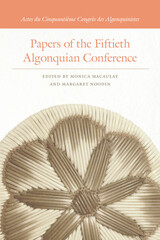
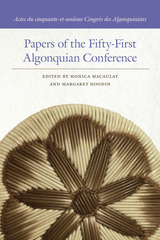
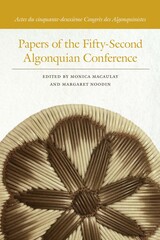
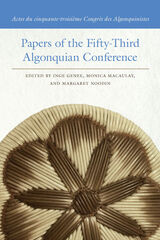
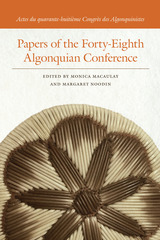
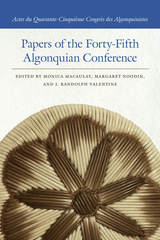
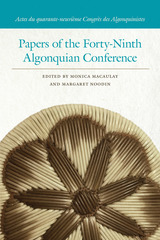
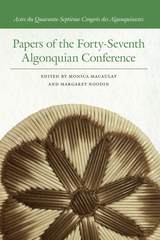
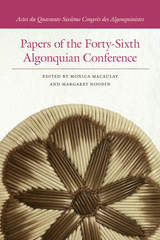
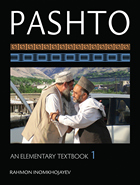
eTextbooks are now available to purchase or rent through VitalSource.com! Please visit VitalSource for more information on pricing and availability.
Pashto, designated a critical language by the US Department of Defense, is one of two official languages of Afghanistan and is also spoken in parts of Pakistan. Volume 1 of Pashto: An Elementary Textbook is designed to cover one semester of beginning-level language instruction; together, Volumes 1 and 2 of Pashto cover one year of instruction. The textbook provides learners and instructors with a wide selection of task-oriented, communicative language materials to facilitate the development of language learning. It features a functional approach to grammar, an emphasis on integrated skills development, and the use of authentic materials.
The activities provided in the textbook will help learners to develop strong skills in speaking, listening, reading, and writing. In addition to the cultural background embedded in the video materials, the textbook contains cultural notes that improve competency.
Volumes 1 and 2 of Pashto: An Elementary Textbook each include:• Authentic audio and video materials to accompany the text, available on the Press website• Extensive Pashto–English and English–Pashto glossaries• Material for teaching the Arabic-based Pashto alphabet • Color illustrations and photographs throughout
Topics coveredVolume 1 (first semester): The Pashto alphabet, writing, reading, pronunciation, greetings and introductions, university life, daily activities, in the city, and family
Volume 2 (second semester): Seasons, weather, holidays, health, food, sport, and shopping
For Instructors: Exam copies of the textbook are available free of charge to instructors and can be ordered on this page. To request a print sample, please use the "print" exam copy button. Instructors may request a digital sample by logging into VitalSource.com, selecting "Faculty Sampling" in the upper right-hand corner, and selecting the desired product.
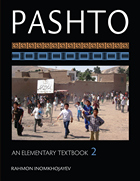
eTextbooks are now available to purchase or rent through VitalSource.com! Please visit VitalSource for more information on pricing and availability.
Pashto, designated a critical language by the US Department of Defense, is one of two official languages of Afghanistan and is also spoken in parts of Pakistan. Volume 2 of Pashto: An Elementary Textbook is designed to cover the second semester of beginning-level language instruction; together, Volumes 1 and 2 of Pashto cover one year of instruction. The textbook provides learners and instructors with a wide selection of task-oriented, communicative language materials to facilitate the development of language learning. It features a functional approach to grammar, an emphasis on integrated skills development, and the use of authentic materials.
The activities provided in the textbook will help learners to develop strong skills in speaking, listening, reading, and writing. In addition to the cultural background embedded in the video materials, the textbook contains cultural notes that improve competency.
Volumes 1 and 2 of Pashto: An Elementary Textbook each include:• a CD-ROM featuring authentic audio and video materials to accompany the text• extensive Pashto–English and English–Pashto glossaries• material for teaching the Arabic-based Pashto alphabet • color illustrations and photographs throughout
Topics coveredVolume 1 (first semester): The Pashto alphabet, writing, reading, pronunciation, greetings and introductions, university life, daily activities, in the city, and family
Volume 2 (second semester): Seasons, weather, holidays, health, food, sport, and shopping
For Instructors: Exam copies of the textbook are available free of charge to instructors and can be ordered on this page. To request a print sample, please use the "print" exam copy button. To request a digital sample, instructors should log onto VitalSource.com, select "Faculty Sampling" in the upper right-hand corner, and select the desired product.

Designated a critical language by the US Department of Defense, Pashto is one of the two official languages of Afghanistan and is commonly spoken in parts of Pakistan. This intermediate-level textbook, which follows Pashto: An Elementary Textbook, Volumes 1 and 2, is designed to bring students from high-introductory to intermediate proficiency. It offers students with basic knowledge of Pashto a thematically organized approach that develops strong speaking, listening, reading, and writing skills in the language used in everyday life and in official communications, the mass media, and the educational system of Afghanistan.
Utilizing current innovations in foreign language teaching, Pashto: An Intermediate Textbook is an invaluable resource for professionals and students wishing to improve their proficiency in this critical language.
Features of Pashto: An Intermediate Textbook:• More than a hundred audio files, available to stream on the Press website. Vocabulary lists allow readers to hover over a written word or phrase and hear it in both eastern and western dialects.• Carefully selected themes, including practical situations in survival and rich descriptions of the Pashtun code of honor and wedding customs, in order to help students learn the language within its cultural context.• Grammar points that help students quickly master the essential function of the structural elements used in the texts.• Pashto-English and English-Pashto glossaries that provide information regarding the gender and number of nouns, adjectives, and various forms of verbs.• Attractive four-color, user-friendly design with integrated audio and written exercises and cultural notes to provide students with necessary background.

This study analyzes passive sentences in English and Portuguese which result from a post-semantic transformation applied when a nound, which does not play the semantic role of actor, is chosen as syntactic subject. Choice between a passive and its non-passive or active counterpart reflects differences in the distribution of information in the sentence as regards the relative importance of the latter's constituents for communication. Such distribution is analyzed in terms of Praque school theory, especially that involving the notions of communicative dynamism and the distribution of theme and rheme.
The book concludes with a contrastive analysis of English and Portuguese passive sentence patterns which serves as the basis for observations on the teaching of Portuguese passives to native speakers of English.
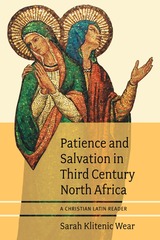
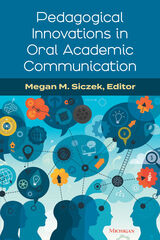
Pedagogical Innovations in Oral Academic Communication is grounded in four key principles: academic discourse socialization; context-responsive instruction; instructional approaches of English for Academic Purposes and English for Specific Purposes; and asset-oriented pedagogy. In the chapters in this collection, the authors share their teaching context, the details and underlying principles of their pedagogical approach, and recommendations for practitioners. Readers will develop a deeper understanding of the communicative contexts their students inhabit, including the types of speaking situations they are likely to encounter, and understand how to innovate their approach to teaching oral communication to students from diverse cultural, linguistic, educational, and disciplinary backgrounds. Such innovations prepare students for more effective communication during their academic studies and professional career, a goal that is of central importance in our globally interconnected society.
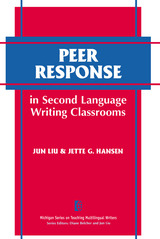
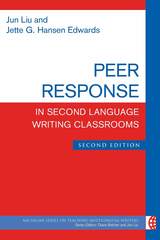
Now that classes are as likely to be online as held in physical classrooms and now that a new generation of digital natives can routinely read and respond to what others write via laptops, tablets, and phones, peer response as pedagogical practice is not just more easily implemented, but it is more likely to feel natural to L2 learners.
The Second Edition is a highly accessible guide to how the world is using peer response and serves as a motivator and facilitator for those who want to try it for the first time or want to increase the effectiveness of the activities—whether via CMC or not. The volume includes 11 forms useful in training students to provide good peer feedback, including a final checklist to ensure teachers have taken all the necessary steps to achieve a successful peer feedback activity.
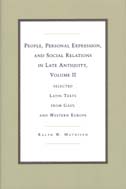
Late Antiquity, which lies between Classical Antiquity and the Middle Ages (ca. A.D. 250-750), heralded the gradual decline of Mediterranean classical civilization, and the initial formation of a strictly western European, Christian society. During this period, three momentous developments threatened the paternalistic Roman social system: the rise of the Christian church, the disintegration of the Roman Empire in the west, and the establishment of the barbarian kingdoms.
The first of its type, this volume presents a collection of Latin source documents illustrating the social upheaval taking place in the Late Roman and early medieval worlds. The texts included in this volume provide the original Latin for the selections that are translated in People, Personal Expression, and Social Relations in Late Antiquity, Volume I. The 140 selected texts gathered from 70 different sources offer the reader firsthand experience with the ways that the Latin language was being used during the transformative period of Late Antiquity.
Ralph W. Mathisen is Professor of Ancient and Byzantine History; Louise Fry Scudder Professor of Humanities; and Director, Biographical Database for Late Antiquity at the University of South Carolina.
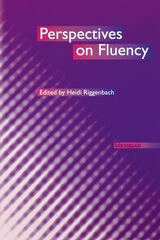
Section 1, What Is Fluency? presents papers that all describe fluency, but in different ways.
The articles in Section 2, Essential Components of Fluency, consider features or components that contribute to impressions of fluency.
Section 3, Cognitive Processes Underlying Fluency, is devoted to an exploration of the psycholinguistic factors underlying fluency.
Three studies are presented in Section 4, Empirical Studies on Nonnative Fluency, and they exemplify the range of approaches to characterizing learners as fluent or nonfluent in their target language.
One objective of Perspectives on Fluency is to provide a starting point for language researchers interested in exploring the concept of fluency, a foundation that, until the arrival of this volume, did not exist. The book can be useful to those approaching fluency from a language assessment perspective, and those interested in the relationship of fluency to oral proficiency.
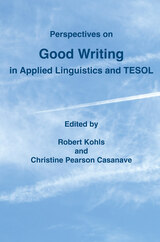
In Perspectives on Good Writing in Applied Linguistics and TESOL, readers will develop their understanding of writing practices through chapters covering the following areas:
- teaching, learning, and assessing
- mentoring, supervising, and publishing
- personal perspectives
- readers and reading
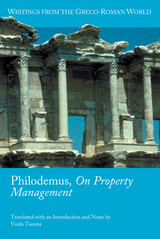
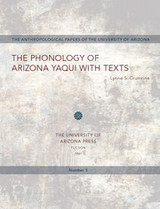
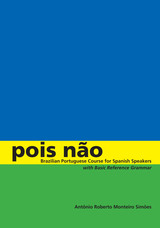
Spanish speakers can learn Brazilian Portuguese much more rapidly than any other language, and thousands of students have used Antônio Simões's text/workbook Com licença: Brazilian Portuguese for Spanish Speakers to make the transition between the two languages. Recognizing the need for a text that incorporates current cultural references and the latest language pedagogy, Simões now offers Pois não: Brazilian Portuguese Course for Spanish Speakers, with Basic Reference Grammar.
Pois não contrasts Portuguese and Spanish, which accomplishes two main goals. It teaches the equivalent of one year of college Portuguese in one semester, three times a week, to Spanish speakers who also have a solid understanding of English. Additionally, the book serves as a basic reference guide to Brazilian Portuguese for the same audience.
Pois não can be used by students in the classroom or by independent learners. Users of the book may focus on the drills alone, concentrate on both the explanations and drills, or use the book as a reference for consultation only. Answers to all of the exercises are included in the book. Audio and video recordings by native Brazilian speakers of dialogues that appear in the book can be downloaded at https://utexas.box.com/v/PoisNaoAudio.

An essential, comprehensive guide for all who are interested in learning the Portuguese language and mastering its complexities, Portuguese: A Reference Manual supplements the phonetic and grammatical explanations offered in basic textbooks. While the Manual focuses on Brazilian Portuguese, it incorporates European Portuguese variants and thus provides a more complete description of the language. Accessible to non-linguists and novice language learners, as well as informative for instructors of Portuguese and specialists in other languages, this guide incorporates the Orthographic Accord (in effect since 2009–2010), which attempts to standardize Portuguese orthography.
The Manual reflects the language as it is currently taught at both the undergraduate and graduate levels by providing detailed explanations of the sound and writing systems and the grammar of the principal Portuguese dialects. A reference guide rather than a textbook, the Manual also provides extensive verb charts, as well as comparisons of Portuguese with English and Spanish.
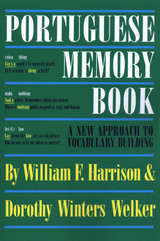
Mnemonics is an age-old device for remembering names, numbers, and many other things. The Portuguese Memory Book, by William F. Harrison and Dorothy Welker, makes use of this reliable memory help in a series of mnemonic jingles that are by turns playful, sardonic, touching, and heroic to help both students and independent learners acquire and remember Portuguese vocabulary.
The mnemonic jingles present both the sound of the Portuguese word (indicated by syllables in underlined boldface type) and its English meaning (given by a word or phrase in boldface type):
noite (f.) night
Don't annoy Chihuahuas in the night.
If you ignore their bark, you'll feel their bite.
This innovative approach to vocabulary building is simple, effective, and entertaining. The authors also include a general pronunciation guide to Brazilian Portuguese, particularly to the Carioca dialect of Rio de Janeiro.

This is the first volume of a basic course organized around the concept that to learn another language is to internalize another set of linguistic rules.
A set of 11 audiocassettes totaling 11 hours is available to accompany this volume.

This second volume of the basic Portuguese course contains additional readings for vocabulary refinement and development of cultural knowledge.
A set of 10 audiocassettes is available to accompany Volume II.

However exciting new technologies and educational tools may seem, they can become solely for entertainment unless their design, use, and evaluation are guided by principles of education and language development. Task-based Language Teaching (TBLT) provides an excellent approach for teachers who want to realize the potential of technology to engage learners and improve language learning inside and outside the classroom.
This practical guide shows teachers how to successfully incorporate technology into TBLT in the classroom and to develop technology-mediated materials. Whether the goal is to conduct a needs analysis, to develop classroom or homework materials, or to implement a new approach of student assessment, A Practical Guide to Integrating Technology into Task-Based Language Teaching will be a welcome resource for language teachers at all levels.
Designed for use in the classroom as well as for independent study, the book includes reflective questions, activities, and further reading at the end of each chapter. Examples of units in Chinese, Spanish, ESL, and the hospitality industry are provided.
Georgetown Digital Shorts—longer than an article, shorter than a book—deliver timely works of peer-reviewed scholarship for a fast-paced world. They present new ideas and original content that are easily digestable for students, scholars, and general readers.
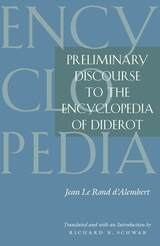

After reading this book, adult ESL practitioners will be able to
- Prepare adults learning English to apply appropriate reading strategies to a variety of academic and professional contexts and purposes
- Use instructional strategies, including digital technology, to help struggling and developing readers close gaps in skills and conceptual knowledge
- Improve reading comprehension through robust vocabulary instruction
- Enhance reading skills and comprehension through writing instruction that balances sentence-level, discourse, and interactive processes and practices
- Inspire students to become lifelong readers who engage in extensive reading outside of school and professional contexts
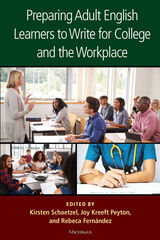
The volume is organized into four parts: Setting the Stage for Teaching Writing, Supporting the Writing Process, Working with Beginning Writers, and Aligning Writing with Accountability Systems. Chapters are written by current (or former) adult educators with experience across levels. Each chapter introduces an approach based on research that can guide writing instruction and provides specific guidance and tools for implementation. Questions open and close the chapters to guide reading and frame future exploration. JoAnn (Jodi) Crandall has written the Epilogue.
Readers will discover ways to move adults into higher education and careers by helping them be college and career ready, to integrate writing into the existing curriculum in adult education programs at all levels, including content classes, and to teach writing according to national and state standards.
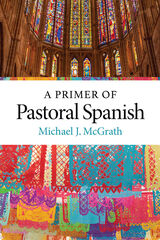
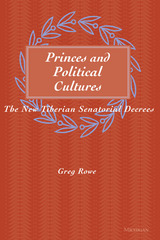
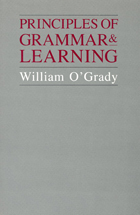
To support this thesis, O'Grady develops a well-articulated, single level, categorial-type grammar that he uses to analyze syntactic categories, extraction, anaphora, extraposition, and quantifier placement in English and other languages. He shows that such grammars can be constructed via general learning strategies from notions such as dependency, adjacency, precedence, and continuity, and that the available acquisition data points to the emergence of the principles he proposes.
While exploratory, this book provides one of the few serious attempts to develop a theory of grammar and learning that does not posit faculty-specific innate principles. Principles of Grammar and Learning is an exemplary attempt to bring together issues and data from syntactic theory, language acquisition, and the more general study of the human mind.
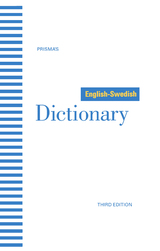


Proceedings of the Harvard Celtic Colloquium, 24 includes “The Celticity of Galicia and the Arrival of the Insular Celts,” by Manuel Alberro; “Reading Aislinge Óenguso as a Christian-Platonist Parable,” by Brenda Gray; “Celtic Legends in Irish Opera, 1900–1930,” by Axel Klein; “‘I wonder what the king is doing tonight’—Looking for Arthur in All the Wrong Places,” by Laurance J. Maney†; “What Future for the Irish Gaeltacht Communities in the Twenty-First Century?” by Nollaig Ó Gadhra†; “Acallam Na Senórach as Prosimetrum,” by Geraldine Parsons; “Traditional and Courtly Themes in a Medieval Welsh Elegy to a ‘Góann Wargann Wery’ (‘A Fair Virgin, Meek and Mild’),” by Laura Radiker; and “Welsh Prophetic Poetry in the Age of the Princes,” by Elizabeth Schoales.
Proceedings of the Harvard Celtic Colloquium, 25 includes “Keltoi, Galatai, Galli: Were They All One People?” by Timothy P. Bridgman; “On Verbal Nouns in Celtic Languages,” by Chao Li; “Cross-Linguistic Discourse Markers in Manx Gaelic and English,” by Marie Clague; “The Acallam na Senórach: A Medieval Instruction Manual,” by Annie Donahue; “Gendered Postcolonial Discourse in the Mabinogi,” by Morgan Kay; “Language Death and Resurrection in the Isle of Man: The Continuity of Manx Gaelic Exemplified by the Use of Inflected Verb Tenses,” by Jennifer Kewley Draskau; “High Kings and Pipe Dreams: Revisiting John Vincent Kelleher’s Theory of Revision to the Early Irish Annals,” by Laurance J. Maney†; and “The Rise of Christian Nomenclature in Medieval Scotland,” by David Morris.

Proceedings of the Harvard Celtic Colloquium, 26 includes “Heroic Recycling in Celtic Tradition,” by Joseph F. Nagy; “On the Celtic-American Fringe: Irish–Mexican Encounters in the Texas–Mexico Borderlands,” by Marian J. Barber; “The Encomium Urbis in Medieval Welsh Poetry,” by Helen Fulton; “Prophecy in Welsh Manuscripts,” by Morgan Kay; “‘Ceol agus Gaol’ (‘Music and Relationship’): Memory, Identity, and Community in Boston’s Irish Music Scene,” by Natalie Kirschstein; “Colonization Circulars: Timber Cycles in the Time of Famine,” by Kathryn Miles; “Up Close and Personal: The French in Bantry Bay (1796) in the Bantry Estate Papers,” by Grace Neville; “In Praise of Two Margarets: Two Laudatory Poems by Piaras Feiritéar,” by Deirdre Nic Mhathúna; “Observations on Cross-Cultural Names and Name Patterns in Medieval Wales and the March,” by Laura Radiker; and “Mouth to Mouth: Gaelic Stories as Told within One Family,” by Carol Zall.
Proceedings of the Harvard Celtic Colloquium, 27 includes “Poets and Carpenters: Creating the Architecture of Happiness in Late-Medieval Wales,” by Richard Suggett; “Revisiting Preaspiration: Evidence from the Survey of the Gaelic Dialects of Scotland,” by Anna Bosch; “The Anoetheu Dialogue in Culhwch ac Olwen,” by Fiona Dehghani; “Homophony and Breton Loss of Lexis,” by Francis Favereau; “The Origins of ‘the Jailtacht,’” by Diarmait Mac Giolla Chríost; “A Confluence of Wisdom: The Symbolism of Wells, Whirlpools, Waterfalls and Rivers in Early Celtic Sources,” by Sharon Paice MacLeod; “The Real Charlotte: The Exclusive Myth of Somerville and Ross,” by Donald McNamara; “Language Shift in Early Twentieth-Century Ireland,” by Máire Ní Chiosáin; and “Conceptions of an Urban Ideal and the Early Modern Welsh Town,” by Sally-Anne Shearn.

Proceedings of the Harvard Celtic Colloquium, 38 collects papers ranging widely on topics of the literary and material culture of the Celtic regions of Ireland, Wales, and Breton in the medieval and modern periods. Several articles concern the self-awareness of the literary elite in Ireland and Wales, whose members respected the traditional forms of their literature but used them to further contemporary purposes. For example, they introduce new references to foreign places and cultures, or use older topographical lore to describe and justify contemporary land use and settlement. Other articles review material culture as it is reflected in literary works of their respective periods and discuss how this in turn illuminates the attitudes of the authors and their intended readers. A number of contributions concern the grammatical structure and linguistic formation of the languages of Ireland, Wales, and Brittany, both early and modern.
The special lecture for the Harvard Celtic Colloquium this year was given by Dr. Aled Jones, Senior Lecturer in Welsh and Medieval Studies at Bangor University, Wales, comparing modern astrophysics to the plasticity of time in medieval Celtic literature, a thought-provoking consideration of congruences in modern and medieval conceptions of time and space. This volume also contains the 2018 Kelleher lecture given by Dr. William Gilles of the University of Edinburgh on a problematic early Scots-Gaelic text, the Harlaw Brosnachadh.

This volume of the Proceedings of the Harvard Celtic Colloquium offers a wide range of articles on topics across the field of Celtic Studies. It includes the Colloquium keynote given by Prof. Barbara Hillers which studied the literary use of folklore, Irish and international, in the Irish tale “Aislinge Meic Con Glinne” (“The Vision of Mac Con Glinne”).
More recent literary topics expand the scope of this volume from the medieval into the early modern period, and into the early twentieth century. Of special interest to scholars of more recent times will be articles on the Irish language in nineteenth-century American print media, and on the unpublished sequel by Muiris Ó Súilleabháin to his memoir Fiche Blian ag Fás (1933), which was published in English as Twenty Years a-Growing.

This volume of Proceedings of the Harvard Celtic Colloquium is graced with two J. V. Kelleher lectures: the 2019 lecture by Máire Ní Mhaonaigh on Irish chronicles and the 2021 presentation by Ruairí Ó hUiginn assessing the Irish genealogical corpus in its sociological context. It also includes Georgia Henley’s 2021 keynote on the differing literary receptions in Norman Ireland and Wales of Geoffrey of Monmouth’s history of Britain and related prophecies.
Other articles in Volume 40 survey a wide array of topics in Celtic Studies, centering on Irish and Welsh material with the smaller language areas appearing as well, and ranging from medieval to modern times. While most are literary or linguistic in their focus, some historical context is also provided.

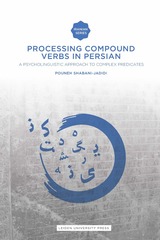

An advanced, student-centered textbook that uses popular media to explore diverse perspectives from across Russian-speaking cultures
Pro-dvizhenie is a student-centered, inquiry-based textbook designed to build Advanced-level Russian proficiency through engagement with timely topics that encourage reflection and examination. Whether exploring the role of technology in relationships, learning about indigenous communities of Russia, or reflecting on what it means to live well, Pro-dvizhenie uses popular Russian film, TV, and media as a springboard for various types of activities, including skill-building exercises, essay writing, and group projects. Students are encouraged to challenge assumptions and make intercultural connections throughout while developing ACTFL Advanced-level skills such as argumentation, narration, and collaboration.
Students benefit from extensive activities and resources, including audio and video of diverse voices and viewpoints from across Russia, available to stream on the Press website. A full-service textbook for instructors, Pro-dvizhenie includes extensive online instructors’ resources, such as additional grammar and vocabulary assignments, writing and group project prompts, grading rubrics, and answer keys. A modular structure and activities at various levels of difficulty give instructors the flexibility to select material in the book based on their class’s needs, making Pro-dvizhenie perfectly suited for mixed-level classrooms. The textbook can be used over one semester or over the course of a full year.
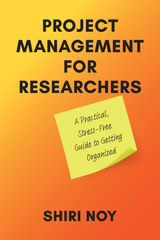
Project Management for Researchers tackles the how, what, and why of project management. It offers step-by-step guidance on choosing tools and developing a personalized system that will help the reader manage and organize their research so that steps and decisions are documented for accountability and reproducibility. Readers will find worksheets they can adapt to their own needs, priorities, and research as well as practical tips on issues ranging from emails to scheduling. Suitable for work across methods, experience levels, and disciplines and adaptable for those working alone, with others, or as team managers, this book will guide readers between various research stages–from planning, to execution, to adjustment of research projects big and small.

Pronouncing English is a textbook for teaching English phonetics and phonology, offering an original "stress-based" approach while incorporating all the standard course topics. Drawing on current linguistic theory, it uniquely analyzes prosody first, and then discusses its effects on pronunciation—emphasizing suprasegmental features such as meter, stress, and intonation, then the vowels and consonants themselves.
Distinguished by being the first work of its kind to be based on an exhaustive statistical analysis of all the lexical entries of an entire dictionary, Pronouncing English is complemented by a list of symbols and a glossary. Richard Teschner and M. Stanley Whitley present an improved description of English pronunciation and conclude each chapter with suggestions on how to do a better job of teaching it. An appendix with a brief introduction to acoustic phonetics—the basis for the perception vs. the production of sounds—is also included. Revolutionary in its field, Pronouncing English declares that virtually all aspects of English pronunciation—from the vowel system to the articulation of syllables, words, and sentences—are determined by the presence or absence of stress.
The accompanying CD-ROM carries audio recordings of many of the volume's exercises, more than 100 text and sound files, and data files on which the statistical observations were based.
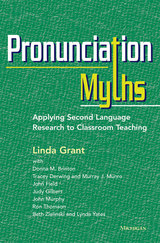
This volume was conceived as a "best practices" resource for pronunciation and speaking teachers in the way that Vocabulary Myths by Keith S. Folse is one for reading and vocabulary teachers. Like others in the Myths series, this book combines research with good pedagogical practices.
The book opens with a Prologue by Linda Grant (author of the Well Said textbook series), which reviews the last four decades of pronunciation teaching, the differences between accent and intelligibility, the rudiments of the English sound system, and other factors related to the ways that pronunciation is learned and taught.
The myths challenged in this book are:
§ Once you’ve been speaking a second language for years, it’s too late to change your pronunciation. (Derwing and Munro)
§ Pronunciation instruction is not appropriate for beginning-level learners. (Zielinski and Yates)
§ Pronunciation teaching has to establish in the minds of language learners a set of distinct consonant and vowel sounds. (Field)
§ Intonation is hard to teach. (Gilbert)
§ Students would make better progress if they just practiced more. (Grant)
§ Accent reduction and pronunciation instruction are the same thing. (Thomson)
§ Teacher training programs provide adequate preparation in how to teach pronunciation (Murphy).
The book concludes with an Epilogue by Donna M. Brinton, who synthesizes some of the best practices explored in the volume.
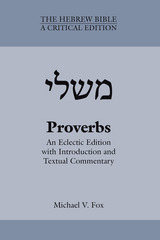
A new critical text for Proverbs drawing from many manuscripts
This first volume of The Hebrew Bible: A Critical Edition series, features a critical text of Proverbs with extensive text-critical introductions and commentaries. This and future HBCE volumes bring together a scholar’s critical decisions into a single text. construct an eclectic text, drawing from many manuscripts or placing entirely variant texts side by side. A common approach for critical editions of other ancient books, including the New Testament, the eclectic approach and scope used in the HBCE is a first of its kind for the Hebrew Bible.
Features:
- Emendations set in context rather than singly and marginally
- Introduction that sets out the method and purpose of the volume
- Extensive list of abbreviations and sigla
READERS
Browse our collection.
PUBLISHERS
See BiblioVault's publisher services.
STUDENT SERVICES
Files for college accessibility offices.
UChicago Accessibility Resources
home | accessibility | search | about | contact us
BiblioVault ® 2001 - 2024
The University of Chicago Press









